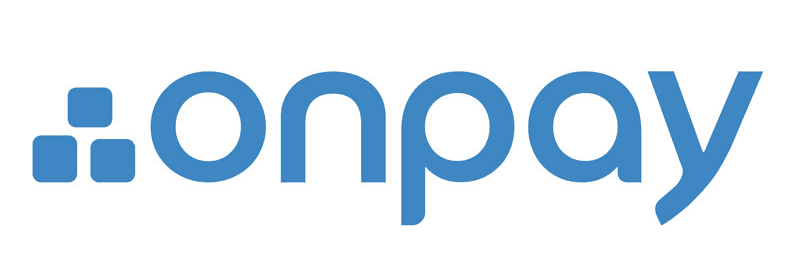Business
What is AI Trading: AI Stock Trading Benefits and Risks
Published
2 years agoon
By
Kai Kelis
Engaging in AI-driven stock trading is a significant move that must be carefully considered. While AI has shown promise in the financial sector, it’s essential to understand the potential benefits and risks involved before starting AI stock trading. But what is AI trading? And why is this a huge potential stream of income? Here’s everything you need to learn about AI stock trading.
What is AI trading?
AI stock trading technology uses artificial intelligence algorithms and machine learning techniques. These techniques automate and optimize buying and selling stocks in financial markets. It combines advanced data analysis, pattern recognition, and decision-making capabilities to assist investors in making more informed and potentially profitable trading decisions.
Machine learning algorithms are a vital component of AI stock trading technology. These algorithms learn from historical data and market patterns to improve their accuracy and predictive abilities. They can adapt to volatile market conditions and adjust trading strategies accordingly. Machine learning models can also identify hidden relationships and factors that impact stock prices, helping investors uncover potential opportunities or risks.
How does AI stock trading work?

AI stock trading works by leveraging advanced algorithms and machine learning methods to analyze vast amounts of financial data, make trading decisions, and execute trades in the stock market. Here is a general overview of how AI stock trading operates:
1. Data Collection
AI stock trading systems gather large volumes of financial data from various sources, including historical price data, market news, company financials, economic indicators, social media sentiment, and more. This data provides the base for analysis and decision-making.
2. Data Preprocessing
The collected data is preprocessed to clean and transform into a suitable analysis format. This step involves removing noise, handling missing values, and standardizing the data to ensure consistency.
3. Feature Extraction
Relevant features or indicators are extracted from the preprocessed data. These features can include technical indicators (e.g., moving averages, volatility measures), fundamental metrics (e.g., earnings per share, revenue growth), sentiment analysis scores, and other factors that could influence stock prices.
4. Model Training
AI algorithms, such as machine learning models or neural networks, are trained using historical data. The models learn from patterns and relationships in the data to make predictions or generate trading signals. Depending on the specific requirements, different algorithms can be employed, such as regression models, decision trees, support vector machines, or deep learning models.
5. Decision-Making
Once the AI models are trained, they can generate trading signals or recommendations based on analyzing current market conditions and the historical patterns they have learned. These signals indicate when to buy, sell, or hold particular stocks or portfolios.
6. Execution
The AI models’ trading signals are automatically executed or reviewed by human traders before executing trades. Automated systems can directly connect to brokerage accounts or trading platforms to execute trades based on the generated signals.
7. Monitoring and Refinement
The performance of the AI models and trading strategies is continuously monitored and evaluated. Feedback is incorporated to refine the models, improve accuracy, and adapt to changing market conditions. This iterative process helps enhance the effectiveness of the AI stock trading system over time.
Top AI stock trading benefits

It’s important to note that while AI stock trading offers potential benefits, it also carries risks. Proper risk management, regular monitoring, and human oversight are crucial to ensure the effectiveness and integrity of AI trading systems. However, the pros outweigh the cons, and these are some of the benefits of AI stock trading:
- Data analysis: AI stock trading can analyze large volumes of financial data in real-time, identifying patterns, trends, and correlations that may be difficult for human traders to detect.
- Faster decision-making: AI algorithms can process information rapidly, enabling quick decision-making and potentially taking advantage of market opportunities before human traders can react.
- Reduced emotional bias: AI stock trading systems are not influenced by emotions or subjective biases, leading to more objective and rational trading decisions.
- Improved accuracy: AI algorithms can learn from historical data to improve their predictive accuracy over time, potentially enhancing trading performance.
- Risk management: AI stock trading systems can incorporate risk management strategies and adhere to predefined rules, helping to mitigate potential losses and protect investments.
- Scalability: AI algorithms can efficiently handle large-scale data analysis and trading operations, making them suitable for managing diverse portfolios and high-frequency trading.
- Adaptability: AI stock trading systems can adapt to changing market conditions and adjust trading strategies accordingly, potentially enhancing performance during different market environments.
- Continuous learning: Machine learning algorithms can continuously learn from new data and market patterns, refining their models and strategies to improve performance over time.
- Automation: AI stock trading can automate the execution of trades, reducing the need for manual intervention and freeing up time for other strategic activities.
Is AI stock trading for stock market beginners?
AI stock trading is not typically recommended for beginners in the stock market. Here are a few reasons why:
1. Complexity
AI stock trading involves sophisticated algorithms, data analysis techniques, and machine learning models. It requires a solid understanding of both finance and AI concepts. Beginners may need prior experience or knowledge in the field to grasp these complex concepts.
2. Limited Understanding
For beginners, developing a foundational understanding of the stock market, investment strategies, risk management, and fundamental analysis is crucial. Engaging in AI stock trading with a solid understanding of these basics can be safe and may lead to better investment decisions.
3. Lack of Control
AI stock trading systems operate autonomously based on predefined rules and algorithms. Beginners may feel uncomfortable relinquishing control of their investment decisions to an automated system. They prefer to have more direct involvement and control over their trades.
4. Risk and Volatility
The stock market can be volatile and unpredictable. AI algorithms are trained on historical data and patterns but may struggle to adapt to unforeseen events or sudden market shifts. Beginners may need a deep understanding of market dynamics to navigate these risks effectively.
5. Overreliance on Technology
Relying solely on AI stock trading systems requires developing personal knowledge and skills in investing to be safe. It’s essential to have a solid foundation in fundamental analysis, market research, and risk management to make informed investment decisions.
For beginners in the stock market, it’s generally advisable to focus on building a solid knowledge base, gaining practical experience, and learning fundamental investment principles. As their understanding and confidence grow, they can gradually explore more advanced strategies, including AI-driven approaches, with proper education and guidance from experienced professionals.
You may like
Business
Top 10 Best Places to Buy a Mid Century Modern Office Chair
Published
2 weeks agoon
July 4, 2025
What was once old is new again: mid century modern is back in style. From architecture to furniture, the postwar look is in, and the hype extends all the way to office chairs.
Do you need a mid century modern office chair in your life? If so, there’s plenty to choose from. Your office chair should be tailored to your style, whether you like luxury, utility, or something in between.
That’s why we’ve put together our 10 favorite places to find your ideal mid century modern office chair.
What is mid century modern design?
After World War II, spirits were high in the US, and new technology was taking the country by storm. Mid century modern refers to the design concepts that came about during this time.
As opposed to the frilly, ornate designs of classical furnishings, mid century modern designs are angular, material, and functional. Wood is a common design element, especially teak. Mid century modern furniture may also have materials like glass, vinyl, and metal. Designs are simple and geometric, with bold accent colors to make them pop.
The mid century modern aesthetic never really went away, but it’s made a noted comeback in recent years. Some have chalked it up to Boomer and Gen X nostalgia, others point to mid-century-set shows like Mad Men and The Marvelous Mrs. Maisel.
Why should I buy a mid century modern office chair?
Mid century modern is the perfect fusion of style and utility. If you want to cultivate an office space that commands respect without being ostentatious, mid century modern is the style for you.
When it comes to office chairs, an MCM one is often made with sturdy wood and vinyl. They combine the ergonomics of a modern office chair with old-fashioned grace.
If you’re concerned with utility and utility only, a more bog-standard office chair may suit you. But a mid century modern office chair is great for someone who wants to wow colleagues with a mature, thoughtful business space.
Where can I get a mid century modern office chair?
1) Wayfair

When it comes to furniture, Wayfair offers the best of both worlds. Their goods, including their mid century modern office chairs, are stylish and affordable. You can get a sturdy task chair for less than $100 or a more distinguished seat for less than $350.
MCM office chair examples: Dovray ($126), Bradford ($139), Lithonia ($133)
2) France & Son

Wayfair’s chairs are affordable, but France & Son is the perfect option for luxury shoppers. Their mid century modern office chairs are robust and sleekly designed. If you dress to impress and enjoy the finer things in life, these are the chairs for you.
MCM office chair example: Brooks ($695)
3) Houzz

Started as a community for people to share home decor tips, Houzz has become a great ecommerce platform for finding stylish furniture. They’re more known for home decor than desk chairs, but they have plenty of great, affordable finds if you know where to look.
MCM office chair examples: Arvilla ($173), Rathburn ($259)
4) Laura Davidson

The Laura Davidson collection offers a fairly limited selection of classic office furniture. Still, there’s a reason they’re trusted by big-wigs like Apple, Disney, and Salesforce. Their chairs are sturdy and beautifully designed, reimagining classic Eames and Knoll designs.
MCM office chair examples: Rockefeller ($275), SOHO II Soft Pad ($450)
5) Icons of Manhattan

Icons of Manhattan has a simple philosophy: do one thing, and do it right. Their office chairs are handcrafted from premium materials and tailored to a mid-century modern style. If you want that Mad Men energy in your office (hopefully with a lot less angst), these are the chairs for you.
MCM office chair example: Ribbed Medium ($219)
6) Amazon

Yes, the internet’s premier shopping destination has a robust collection of mid century modern office chairs. Like with most products, their selection of seats is vast and can be hit or miss. Still, they’ve got stunning chairs available for any style, whether you care about comfort, class, or ergonomics.
MCM office chair examples: IDS Home Modern ($219), Art Leon MCM Swivel ($139)
7) AllModern

AllModern’s collection of desk chairs and other furniture truly embodies the mid century modern spirit. Their work is tight, angular, and functional above all. They’re part of the Wayfair family and they traffic in a number of modern styles, but their sleek chairs are perfect for any mid century modern space.
MCM office chair examples: Frederick ($229), Kealey ($349)
8) Overstock

Overstock is known as a one-stop shop for quality home goods at sub-wholesale prices. If you want a spiffy mid century modern office chair that won’t break the bank, they’re the first place to look. While they’re somewhat less reliable than the more upscale platforms on this list, their selection is massive.
MCM office chair example: Joseph Modern ($163)
9) Walmart

Hayneedle’s selection of mid-century modern office chairs falls somewhere between the minimal Laura Davidson and the endless Amazon catalog. Their array of mid-century designs is affordable and versatile, with chairs that match almost any style. While they may be part of the Walmart family, these chairs are anything but second-rate.
MCM office chair example: Waleaf ($97)
10) Target

Why splurge when you can save? As usual, Target is a hidden gem, offering a sturdy selection of mid century modern office chairs for some of the cheapest prices out there. Many of the chairs they offer are from the same designers as these other stores—Christopher Knight, LumiSource, Armen Living, etc.—at reduced prices.
MCM office chair example: Lombardi ($136)

A quality payroll service is one of the most invaluable tools any entrepreneur can have. Whether you’re a small business owner or an HR manager, paying your employees on time is crucial. This makes choosing a service even more weighty, after all, it is a heavy administrative burden. The good thing is, you can outsource this duty to an online payroll processor.
According to statistics, 49% of workers begin a new job search after just two paycheck errors, and with 65% of workers living paycheck to paycheck, it’s more important than ever to ensure an efficient, effective payroll process.
These services can save you precious time and mitigate potential issues. To make it easy for you to choose, we listed the best online payroll services for 2025.
Top 5 Online Payroll Services
Gusto
Gusto is a great option for both new and experienced payroll administrators, boasting an incredibly clean user interface and a first-rate payroll setup. Gusto lets you manage your employee’s time off (vacation and sick pay), company health insurance, and worker’s comp. Gusto offers excellent mobile access, too. This allows employees to manage aspects of their Gusto profiles, view payday insights, and access Gusto Wallet financial tools.
Gusto offers four tiers of membership, the most affordable of which is the Contractor’s Only plan, which offers unlimited U.S.-based and global contractor payments, supporting more than 100 countries, plus 1099 creation and filing at a rate of $6 per person per month with no base price.
The other three are Simple, Plus, and Premium. Here’s a deeper look into each plan:
Simple
Price:
$40/mo + $6/mo per person
Plan details:
- Full-service single-state payroll including W-2s and 1099s
- Employee profiles and self-service
- Basic hiring and onboarding tools
- Gusto-brokered health insurance administration
- Employee financial benefits
- Payroll and time-off reports
- Custom admin permissions
- Integrations for accounting, time tracking, expense management, and more
Plus
Price:
$80/mo + $12/mo per person
Plan details:
(All Simple plan features +)
- Full-service multi-state payroll including W-2s and 1099s
- Next-day direct deposit
- Advanced hiring and onboarding tools
- PTO management and policies
- Time tracking and project tracking
- Workforce costing and custom reports
- Team management tools
- Full support
Premium
Price:
Bespoke pricing, reach out for a personalized quote
Plan details:
(All Plus plan features +)
- HR Resource Center
- Compliance alerts
- Access to certified HR experts
- Full-service payroll migration and account setup
- Health insurance broker integration
- R&D tax credit discount
- Waived fees and exclusive pricing
- Performance reviews
- Employee surveys and insights
- Dedicated support
QuickBooks Online Payroll
Founded in 1983, Intuit is a California-based financial software company. Since its inception, Intuit has developed into one of the best-known providers of accounting software. Their online payroll service, QuickBooks, includes the essential features you need to run payroll.
QuickBooks offers three tiers of membership. The least expensive membership covers basic accounting features, such as invoices. For more features, check out the Essentials and Plus memberships. Each plan’s features are as follows:
QuickBooks Simple Start (2025)
- Price: $38/month for 1 user
- Best for: Freelancers and small teams with basic payroll needs
Features:
- Automated bookkeeping
- 5 free ACH bank transfers/mo for bills
QuickBooks Essentials (2025)
- Price: $75/month for 3 users
- Best for: Small businesses needing deeper financial tracking
Features:
- Includes all Simple Start features, plus:
- Recurring invoices
QuickBooks Plus (2025)
- Price: $115/month for 5 users
- Best for: Growing businesses with HR and compliance needs
Features:
- Includes all Essentials features, plus:
- AI-powered profit & loss insights
- Anomaly detection and resolution
- Budgeting
QuickBooks Advanced (2025)
- Price: $275/month for 25 users
- Best for: Established businesses with HR and compliance needs
Features:
- Includes all Plus features, plus:
- Custom user management and permissions
- Custom report builder
- Data sync with Excel
- Revenue recognition
- Forecasting
OnPay

OnPay is a cloud-based full-service payroll processing system capable of running payroll according to a preset schedule, automatically disbursing wages, and calculating and withholding taxes.
OnPay can sync up with several other software your team is already using, making it easy to integrate the service into your team’s system. Another benefit of OnPays model is the simple, transparent pricing structure. No tiers; just one base rate.
Pricing:
$49/mo + $6/mo per employee
SurePayroll

SurePayroll’s award-winning service supports W-2 employees and 1099 contractors. Additionally, it handles 401(k) deductions and manages flexible spending accounts (FSA) and health savings accounts (HSA).
SurePayroll also offers a mobile app— available on both Apple and Android devices.
SurePayroll offers live support through its United States-based support team through chat, email, or phone.
Small Business Payroll
- Price: No Tax Filing: $20/month + $4 per employee, Full Service: $29/month + $7 per employee
- Best for: Small businesses and startups
Features:
- We file and deposit your federal and state taxes!
- Run payroll in 3 simple steps
- Schedule payroll to run automatically
- Unlimited payroll runs and free 2-day direct deposit
- Reports and pay stubs are available online 24/7
- Supports W-2 employees and 1099 contractors
Nanny & Household Payroll
- Price: Full-Service Household, $39/month, includes 1 employee, $10 per additional employee
Best for: Homeowners
Features:
- Signature-ready Schedule H
- We file & deposit your federal and state taxes!
- Run payroll in 3 simple steps
- Schedule payroll to run automatically
- Unlimited payroll runs and free 2-day direct deposit
- Reports & paystubs available online 24/7
- Supports W-2 employees & 1099 contractors
Be sure to choose a payroll service that works for your business, and provides you with the peace of mind that comes with a reliable bookkeeping system. Your employees will thank you.

Merck is currently in talks to acquire Seagen, a biotech company. The Wall Street Journal reports that the transaction is valued at $40 billion. And what happens if Merck acquires Seagen, and how would this acquisition benefit cancer research and treatment? Read more about the Merck Seagen buyout here.
Merck Seagen Buyout
Merck and Seagen are still deciding on their share prices. So far, talks have yet to reach an agreement on $200 per share. Both companies want to settle and finalize their deals before Merck announces its quarterly earnings on July 28. At the time of writing, Seagen’s stock was at $176.19.
With an estimated market value of $235 billion, Merck is looking to expand its presence in the cancer treatment space. The Merck Seagen Buyout could play a major role in that strategy. Since Seagen specializes in targeted cancer therapies, the acquisition would give Merck access to a broader range of oncology products.
Shareholder reactions to the new deal are overwhelmingly positive, and the stocks have been up since talks about the deal have been made public.
But this is not the first time that Merck and Seagen have made the news. Back in 2020, they collaborated because of cancer treatments. Seagen has a drug conjugate (ladiratuzumab vedotin) which would be used in conjunction with Merck’s Keytruda.
Merck reveals that Keytruda is its highest-selling product. It’s immunotherapy for cancer.
And this deal could help Merck offset the possibility of reduced sales because it will lose patent protection in 2028.
As promising as this deal is, there could be scrutiny from antitrust officials since there might be a litigation case from the Federal Trade Commission or Justice Department.
The Seagen buyout isn’t the only deal Merck has made recently. They’ve been busy closing another deal, but with Orion too.
Seagen
As a cancer biotech company, Seagen has therapies to ensure that patients benefit from the treatment and reduce any adverse side effects. Their treatments involve the therapy attacking tumors with toxins.
Merck partnering with Seagen isn’t a bad idea considering that Seagen made $1.4 billion in sales in 2021, most of it coming from Adcetris and Padcev (a treatment for urothelial cancers).
Merck-Orion Deal
In the middle of the Merck Seagen Buyout, Merck has recently partnered with Orion for the ODM-208 and other drugs. These drugs are related to the production of steroids. Orion found how it can combat hormone-dependent cancers and further developed this inhibitor.
Their deal includes that they should develop ODM-208 and promote it to the public together. And Orion will receive a $290 million payment from Merck.
Although they’re co-developing and marketing the new inhibitor, Orion will oversee the manufacturing side.
Co-developing the ODM-208 can help Merck with its current research and treatments for prostate cancer. President and CEO of Orion, Timo Lappalainen, says that this partnership will benefit Merck’s goals of treating cancer worldwide.
Other Ventures: Merck’s Role in the Pandemic
You may have heard about COVID-19 pills, which are a form of treatment for those diagnosed with mild to moderate COVID-19. Merck introduced an antiviral COVID-19 pill to the public. The name: Molnupiravir.
The COVID-19 pill is not a replacement for a vaccination. Instead, it stops the replication of the COVID-19 genetic code and keeps the patient out of the hospital. Not yet FDA-approved, Molnupiravir has been authorized for emergency use since December 23, 2021.
And for other stories, read more here at Owner’s Mag!

Should I Buy an Electric Scooter? What You Can Learn

Best Workflow Mapping Tools for Smarter Business Processes

Top White Label Marketing Tools for Agencies: Our 10 Best Picks

Virtual Reality Exhibit Carne Y Arena: The Refugees’ Plight

Top 10 Podcast Editing Software Applications for Beginners

What Is Tiktok Pink Sauce? The Viral Condiment, Explained

Did You Drop Your Smartphone in The Ocean? Here’s How to Retrieve It

Top White Label Marketing Tools for Agencies: Our 10 Best Picks

History of the NBA: The Success Behind the Big League

Demio SaaS 2025 Review: Features, Pricing, Pros & Cons

Did You Drop Your Smartphone in The Ocean? Here’s How to Retrieve It

Virtual Reality Exhibit Carne Y Arena: The Refugees’ Plight

Best Workflow Mapping Tools for Smarter Business Processes

Gift Guide: 25 Best Gifts for Women for All Occasions
Trending
- Technology17 hours ago
Top White Label Marketing Tools for Agencies: Our 10 Best Picks
- Technology22 hours ago
Virtual Reality Exhibit Carne Y Arena: The Refugees’ Plight
- Technology15 hours ago
Best Workflow Mapping Tools for Smarter Business Processes
- Technology23 hours ago
Top 10 Podcast Editing Software Applications for Beginners
- Lifestyle6 hours ago
Should I Buy an Electric Scooter? What You Can Learn





